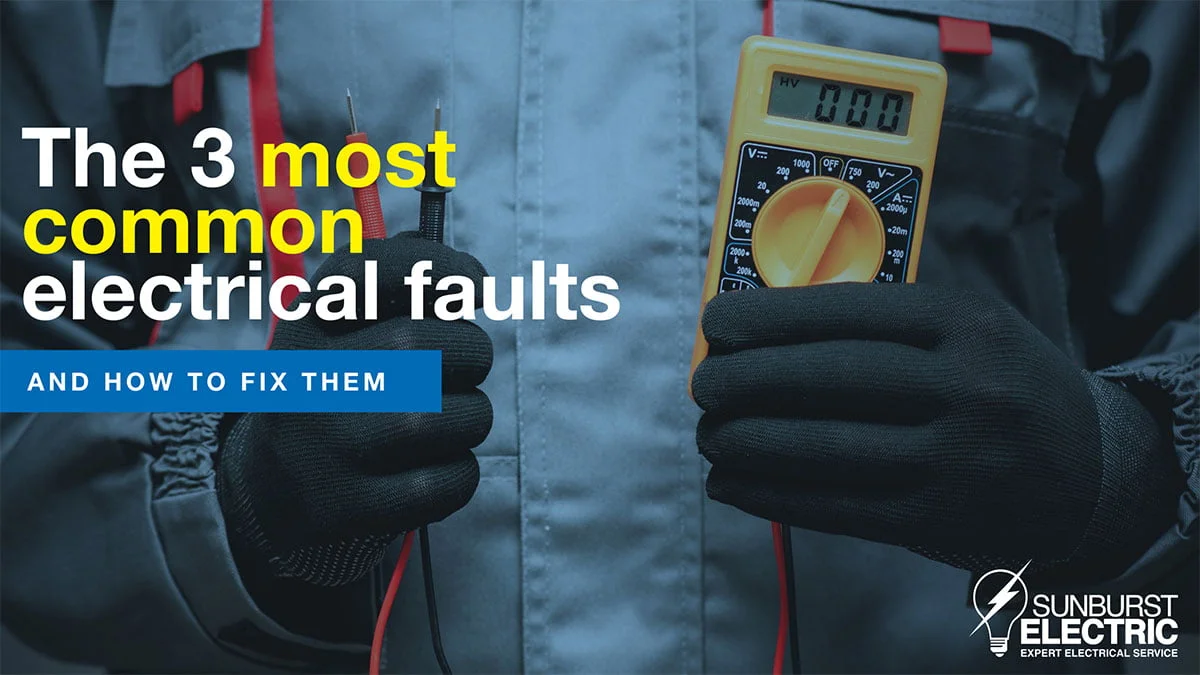Hey there! Worried about potential electrical faults in your home? Look no further! In this article, we’ll uncover the common signs of an electrical fault that you should be aware of. From flickering lights to circuit breakers constantly tripping, we’ll discuss all the red flags you need to watch out for. So, let’s dive right in and learn how to spot those pesky electrical faults before they become major headaches for you!
Common Signs of an Electrical Fault
Electrical faults can be quite frustrating and potentially dangerous. It is essential to be aware of the common signs of an electrical fault to ensure the safety of yourself and your home. By recognizing these signs, you can take appropriate action and seek professional help to address the issue promptly. Here are some of the most common signs that indicate the presence of an electrical fault:
Flickering or Dimming Lights
If you notice that your lights flicker or dim frequently, it could be a sign of an electrical fault. This issue may occur when the wiring in your home is not properly handling the electrical load. Flickering or dimming lights can also be caused by faulty light bulbs or loose connections. However, if the problem persists, it is advisable to have a professional electrician inspect your electrical system.
Frequent Circuit Breaker Tripping
Circuit breakers are designed to protect your home from electrical overloads. If you find yourself frequently resetting circuit breakers, it may indicate an electrical fault. Circuit breakers trip when they detect excessive current flow, which could be caused by faulty wiring, overloaded circuits, or short circuits. If this problem occurs often, it is crucial to identify and rectify the underlying issue as soon as possible.
Electrical Sparks
The occurrence of electrical sparks is never a good sign and should not be ignored. Sparks can indicate loose or damaged wiring, damaged outlets, or frayed cords. If you notice sparks when plugging in or unplugging an appliance or when using an electrical outlet, it is imperative to discontinue use and seek professional assistance immediately. Ignoring electrical sparks can lead to electrical fires and severe injuries.
Burning Smell
A burning smell is a clear indication that something is wrong with your electrical system. It can be caused by overloaded circuits, overheating appliances, faulty wiring, or other electrical malfunctions. If you detect a burning odor near an outlet or from an appliance, do not ignore it. Turn off the power to the affected area, unplug the appliance, and contact a licensed electrician to assess and resolve the issue.
Hot Outlets or Switches
When you touch an outlet or switch and it feels hot to the touch, it is a red flag for an electrical problem. Hot outlets or switches can be caused by loose connections, faulty wiring, or overloaded circuits. It is essential to address this issue promptly as it can lead to electrical fires. If you come across hot outlets or switches, turn off the power to that area and contact a qualified electrician for immediate assistance.
Buzzing or Humming Sounds
If you hear a constant buzzing or humming sound coming from your electrical outlets, switches, or electrical panel, it may indicate an electrical fault. This sound can result from loose connections, faulty wiring, or electrical arcing. It is crucial not to ignore this sign and have a professional electrician investigate the issue. Ignoring the buzzing or humming sound can lead to dangerous electrical failures.
Electrical Shocks
Experiencing electric shocks when touching an appliance or a switch is a clear sign of electrical trouble. While minor shocks may be harmless, repeated or significant shocks can indicate a more severe issue. Faulty wiring, inadequate grounding, or damaged appliances could be the underlying causes. If you consistently experience electrical shocks, it is essential to seek professional help to identify and rectify the problem.
Frequent Power Outages
While occasional power outages can be a result of external factors like storms or utility company maintenance, frequent power outages without any apparent cause can be a sign of an electrical fault. Faulty electrical wiring or overloaded circuits can cause your home’s power supply to trip frequently. If you experience frequent power outages, consult an electrician to assess your electrical system and resolve any underlying issues.
High Energy Bills
If you notice a sudden increase in your energy bills without any evident reason, it could be an indication of an electrical fault. Inefficient or malfunctioning electrical appliances, faulty wiring, or power leaks can contribute to higher energy consumption. A professional electrician can conduct an energy audit of your home, identify any areas of concern, and recommend energy-saving solutions to bring your bills back to normal.
Malfunctioning Appliances
If your appliances frequently malfunction or stop working altogether, it may not always be due to a defect in the appliances themselves. Electrical faults, such as power surges or voltage fluctuations, can damage or disrupt the proper functioning of your appliances. If this issue persists, it is advisable to contact a professional electrician to diagnose and rectify any electrical problems in your home.
In conclusion, being able to recognize the signs of an electrical fault is essential for the safety and well-being of both you and your home. Ignoring these signs can lead to severe consequences, including electrical fires, electrocution, or damage to your electrical devices. If you notice any of the common signs mentioned above, do not hesitate to seek professional assistance. Consulting a qualified electrician will ensure that your electrical system is carefully inspected, any faults are resolved, and preventative measures are put in place to avoid future issues. Remember, the well-being of your home and loved ones depends on your vigilance in addressing electrical faults promptly.
- Tags:
- Electrical
- Fault
- Signs



